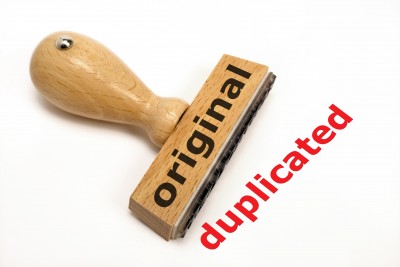
Businesses, public authorities and regulators should work together in developing tracking, tracing and authentication systems in order to combat illicit trade and counterfeiting, says a new report.
Launched by the Coalition Against Illicit Trade (CAIT), the white paper – Governance and Data Management for Cross-Border Tracking, Tracing and Authentication Systems – calls for legislators to heed recommendations on optimal systems that can easily be integrated into business operations to stem the flow of counterfeit goods.
The industry group's white paper advocates that businesses are best placed to select the best emerging authentication technology available for their business objectives even though it was the public authorities and regulators that have a crucial role in defining the tracking, tracing and authentication (TT&A) standards "to ensure the interoperability of the system, especially across borders".
It recommends that more than one security feature – preferably both overt and covert technologies – should be used to provide authentication protection. "Mass serialization is a rapidly growing trend within all manufactured goods as economic operators deploy practical solutions for their needs. However, serializing a product only protects the packaging, not the actual product. When used in conjunction with a tamper evident feature, it helps to further secure the integrity of the product."
However, the report warns that legislative actions by regulators should not lead to TT&A solution monopolies. It cites the US failure to implement anti-counterfeiting RFID chips in pharmaceutical packaging in the early 2000s as an example of how not regulate TT&A measures.
"Public authorities should focus on what they want to achieve from a political and regulatory perspective, rather than dictating the technological means to reach the policy objectives," the report says.
Furthermore, an emphasis on the supply chain, its integrity and transparency was vital for the success of TT&A, especially due to the global nature of supply chains.
"All participants in the supply chain have a responsibility to collaborate and ensure that their part in the overall chain is secure by accurately logging and transmitting all necessary data on the movement of the products."
Consultations should be held for each sector to determine the type of information that should be collected, stored, shared and managed, the report added.
"Experience from a wide range of industries shows that successful deployment of track and trace systems depends on seamless interoperability among disparate information technology systems and internationally recognised technical standards that establish clear rules fir capturing and sharing data," says CAIT.
"Systems of different economic operators and authorities involved along the legitimate supply chain should be able to 'speak to each other'."
The report, which is a collaborative work by supply chain members of CAIT, decided against an EU-wide TT&A system for all consumer goods, saying it would struggle to operate seamlessly and would be at risk of being targeted by cybercriminals.
A number of recommendations are made across data management, data carriers and interoperability, the reporting of track and trace data, security features and implementation costs. The report also mentions the increasing role of the consumer in product authentication, especially as smartphone applications and their sensory capabilities become more prevalent.
©
SecuringIndustry.com





